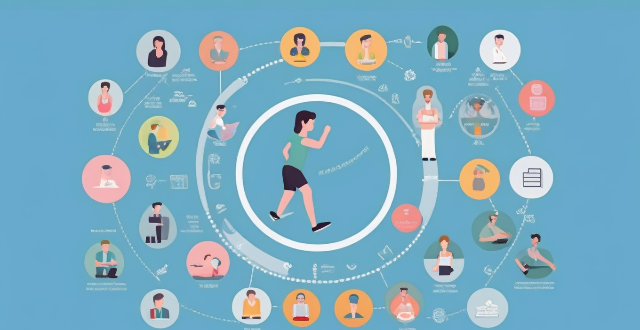The impact of social media on weight loss goals within fitness circles is both positive and negative. On the positive side, social media provides motivation, inspiration, accountability, support, and access to information that can help individuals achieve their weight loss goals. However, it can also create unrealistic expectations, overemphasize appearance, and promote misinformation, leading to disappointment, frustration, and unhealthy practices. To make the most out of social media for weight loss goals, individuals should be mindful of these potential pitfalls and seek reliable sources of information and support from qualified professionals.

The Impact of Social Media on Weight Loss Goals within Fitness Circles
Social media has become an integral part of our daily lives, and it has significantly impacted various aspects of society, including the fitness industry. In recent years, social media platforms such as Instagram, Facebook, and Twitter have been used by fitness enthusiasts to share their weight loss journeys, workout routines, and healthy eating habits. This has led to a surge in popularity of fitness-related content, which has both positive and negative effects on individuals' weight loss goals.
Positive Effects of Social Media on Weight Loss Goals
Motivation and Inspiration
One of the most significant positive effects of social media on weight loss goals is the motivation and inspiration it provides. Seeing other people's progress and success stories can be incredibly motivating for individuals who are struggling to lose weight. It can also provide them with new ideas and strategies to incorporate into their own weight loss journeys.
Accountability and Support
Social media also offers a sense of accountability and support that can be crucial for achieving weight loss goals. Many fitness influencers and groups offer challenges, accountability threads, and support networks where members can share their progress, struggles, and triumphs. This creates a community atmosphere where individuals feel encouraged and supported throughout their weight loss journeys.
Access to Information
Social media provides easy access to a wealth of information related to weight loss, including workout routines, nutrition tips, and healthy recipes. This can help individuals make informed decisions about their fitness routines and dietary habits, leading to better results in the long run.
Negative Effects of Social Media on Weight Loss Goals
Unrealistic Expectations
While social media can be a source of inspiration, it can also create unrealistic expectations about weight loss. Many fitness influencers showcase rapid weight loss transformations or "before and after" photos that may not accurately represent the time and effort required to achieve such results. This can lead to disappointment and frustration when individuals do not see similar results in their own weight loss journeys.
Overemphasis on Appearance
Social media often places a strong emphasis on appearance rather than overall health and wellness. This can lead individuals to focus solely on losing weight and achieving a certain body type, rather than adopting healthier lifestyle habits that promote long-term well-being. Additionally, the constant comparison to others' bodies and progress can contribute to feelings of inadequacy and low self-esteem.
Misinformation and Fad Diets
The abundance of information available on social media can sometimes lead to misinformation and the promotion of fad diets or unhealthy weight loss methods. Without proper guidance from qualified professionals, individuals may follow harmful practices that can negatively impact their health and hinder their weight loss goals in the long run.
Conclusion
Social media has had both positive and negative effects on weight loss goals within fitness circles. While it provides motivation, inspiration, accountability, and access to information, it can also create unrealistic expectations, overemphasize appearance, and promote misinformation. To make the most out of social media for weight loss goals, individuals should be mindful of these potential pitfalls and seek reliable sources of information and support from qualified professionals.